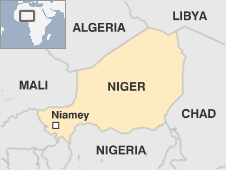 |
Generic Medicines
Taj Pharma is the largest generic pharmaceutical company in India. We hold top positions in different established markets worldwide generics markets..
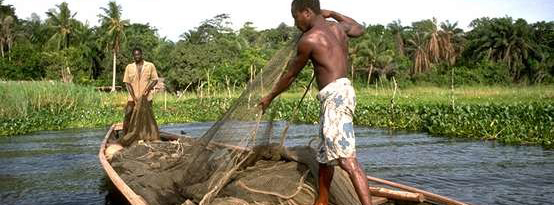
A vast, arid state on the edge of the Sahara desert, Niger endured austere military rule for much of its post-independence history and is rated by the UN as one of the world's least-developed nations.
 |
The drought-prone country sometimes struggles to feed its people. Its main export, uranium, is prone to price fluctuations and agriculture is threatened by the encroaching desert. Niger is bargaining on oil exploration and gold mining to boost its fortunes.
Historically a gateway between North and sub-Saharan Africa, Niger came under French rule in the late 1890s.
AT-A-GLANCE
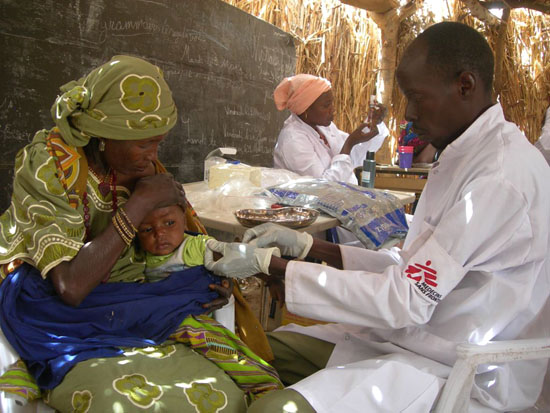 Niger: MSF Vaccinates Nearly 300000 Children Against Measles
Economy: Niger is a leading producer of uranium, and is rich in other minerals. UN rates it as one of world's poorest countries
International: Niger shares borders with seven countries. Some boundaries are disputed
|
After independence in 1960 its progress was stymied by political instability and a five-year drought, which devastated livestock and crops.
With little primary education, Niger has one of the lowest literacy rates in the world. Its health system is basic and disease is widespread.
After a break of a decade, Niger again experienced an insurgency by Tuareg rebels in the north in 2007.
The Niger Movement for Justice (MNJ) complained that a 1995 peace deal that ended the previous insurgency has never been fully implemented and that the region remains marginalised. The group demands greater autonomy and a larger share of uranium revenue.
In 2009, the MNJ and the government held talks in Libya, at which they committed themselves to a "total and comprehensive" peace.
In 1999 voters overwhelmingly approved a new constitution providing for presidential and legislative multi-party elections. These took place later in the year and saw Mamadou Tandja elected as president.
Mr Tandja introduced a new constitution in 2009 to extend his powers in a move described by the opposition as a coup.
Niger banned the centuries-old practice of slavery in 2003. But anti-slavery organisations say thousands of people still live in subjugation.
President: Mamadou Tandja
Mamadou Tandja, who was initially praised for helping restore relative stability to his country, brushed aside domestic and international objections to change the constitution and stay in power.
The former army officer was first voted into office in 1999 and was returned to power in elections in 2004.
 Shots in the streets of Niamey, Niger's largest city, on Thursday announced
|
However, as the expiry of his second and final term approached he sought a constitutional amendment to overturn a provision banning him from standing for a third term.
The Constitutional Court twice ruled his plans for a referendum on the measure illegal. It said the vote had to be approved by parliament, where the president was unlikely to achieve the three-quarters majority needed.
Mr Tandja reacted by disbanding both the court and parliament, and assuming emergency powers.
The referendum went ahead in August 2009 and Mr Tandja scored a landslide victory. Opponents said the referendum was unlawful and the result rigged.
The new constitution allows him to extend his term for three more years without a vote. It scraps term limits and gives Mr Tandja broader powers under a fully presidential government.
Opposition parties accused him of having mounted a coup, and foreign governments - including the US and former colonial power France - voiced grave concern about the developments.
Supporters argue that Mr Tandja has brought economic growth, and deserves a longer stay in power.
Mr Tandja justified the term extension by arguing that the Nigerien people wanted him to stay in power to oversee multi-billion-dollar oil, mining and infrastructure deals. 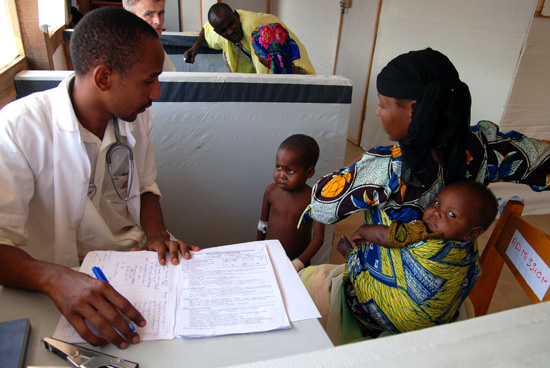
The West African regional bloc ECOWAS suspended Niger's membership when he refused to postpone parliamentary elections in the face of an opposition boycott. Mr Tandja's party won 76 of the 113 seats in the National Assembly on 20 October, while allies won 25 and independents picked up the rest.
Born in 1938, he took part in a coup which overthrew Hamani Diori, Niger's first elected president, in 1974, and subsequently served as interior minister. He stood for the presidency unsuccessfully in 1993 and 1996.
Media
The state controls much of the nation's broadcasting, though private radio stations have proliferated.
Radio is the most important outlet for news and information, owing to low literacy levels. Niger has a government-run daily newspaper and a handful of private papers, some strongly partisan.
Radio France Internationale operates FM relays in the capital Niamey, and in Maradi and Zinder provinces. BBC World Service is available in the capital (100.4 FM).
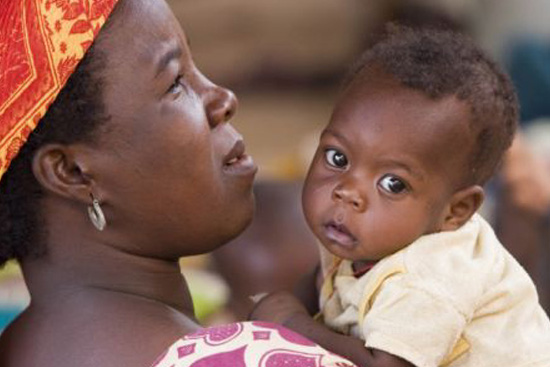 There were 40,000 internet users by September 2007 (ITU figure), comprising 0.3% of the population.
There were 40,000 internet users by September 2007 (ITU figure), comprising 0.3% of the population.
The press
Television
Radio
Africa No 1 - Pan-African radio, relayed in Niamey on FM
AFRICA | ASIA-PACIFIC | AMERICAS | EUROPE | MIDDLEEAST | SOUTHASIA
![]()
![]()
![]()
Mauritania Mauritius Morocco Mozambique Namibia Niger Nigeria Republic-of-congo Rwanda Sao-tome-and-principe Senegal Seychelles Sierra-leone Somalia South-africa Sudan Swaziland Tanzania The-gambia Togo Tunisia Uganda Australia Brunei Burma Cambodia China East-timor Fiji Indonesia Japan Kazakhstan Kiribati Kyrgyzstan Laos Malaysia Marshall-islands Micronesia Mongolia Nauru New-zealand North-korea Palau Papua-new-guinea Samoa Singapore Solomon-islands South-korea Taiwan Tajikistan Thailand The-philippines Tonga Turkmenistan Tuvalu Uzbekistan Vanuatu Vietnam Antigua-and-barbuda Belize Bolivia Brazil Canada Chile Colombia Costa-rica Cuba Dominica Dominican-republic Ecuador El-salvador Grenada Guatemala Guyana Haiti Honduras Jamaica Mexico Nicaragua St-kitts-and-nevis St-lucia Suriname Trinidad-and-tobago Uruguay Venezuela Albania Andorra Armenia Austria Azerbaijan Belarus Belgium Bosnia-hercegovina Bulgaria Croatia Cyprus Czech-republic Denmark Estonia Finland France Georgia Germany Greece Hungary Iceland Ireland Italy Latvia Liechtenstein Lithuania Luxembourg Macedonia Malta Moldova Monaco Montenegro Norway Poland Portugal Russia San-marino Serbia Slovakia Slovenia Spain Sweden Algeria Egypt Iran Iraq Israel-and-palestinian-territories Jordan Kuwait Lebanon Libya Mauritania Oman Saudi-arabia Sudan Syria Tunisia United-arab-emirates Yemen Afghanistan Bangladesh Bhutan India Nepal Pakistan Sri-Lanka The-Maldive